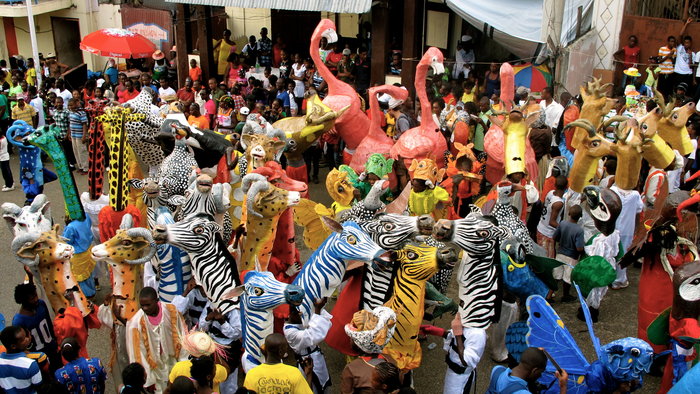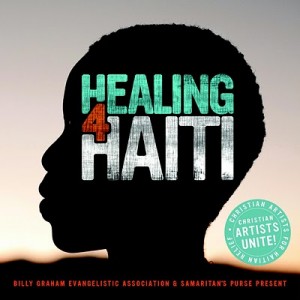
The music from Haiti has developed from a unique blend of cultures. Haitian music was influenced by the French colonial presence and culture and heritage brought to the country by African slaves.
Haiti stands as a vibrant testament to the power of sound and rhythm, a place where music isn’t just an art form but the lifeblood of culture and tradition. “Music from Haiti” is not merely a phrase but an invocation of a rich, complex heritage, a symphony of sounds ranging from the traditional to the contemporary.
This article embarks on an explorative journey, unraveling the layers of Haitian music and its profound impact on the cultural tapestry of the nation.
The Roots of Haitian Musical Tradition
Haitian music is a mirror reflecting the nation’s history, a fusion of African rhythms, French colonial influence, and native Taino culture. At its core are the African rhythms brought over by slaves, interwoven with European elements to create something entirely unique. The most iconic of these is the ‘Kompa,’ a genre that has become synonymous with Haitian identity.
Born from the slow tempo and smooth jazz, Kompa’s infectious beats and melodic keyboard lines invite both contemplation and celebration.
However, to truly understand the depth of music from Haiti, one must delve into the ceremonial rhythms of ‘Vodou’ music. Integral to Vodou religious ceremonies, this genre is a spiritual conduit, featuring percussive rhythms and call-and-response singing that invoke the very spirits the ceremonies are meant to honor.
The ‘Rara’ festival music, with its walking bands of horns and percussion, is another traditional form that fills the streets with its lively, pulsating sounds during Easter Week celebrations.
The Evolution and Influence of Haitian Music
As Haiti progressed through the 20th century, its music evolved, absorbing and remixing elements from various genres. ‘Mini-jazz’ bands in the 1960s and ’70s, for example, incorporated rock and jazz into Kompa, reflecting the global influences seeping into the country. In more recent years, genres like ‘Rap Kreyol’ have emerged, weaving Haitian themes and Creole language with hip-hop beats, showcasing the adaptability and contemporary relevance of Haitian music.
Haitian music has not just evolved internally; it has influenced sounds across the Caribbean and beyond. The rhythmic patterns and styles have left an indelible mark on genres like reggae and salsa, showcasing Haiti’s musical contributions on an international scale.
Artists like Wyclef Jean have brought further attention to Haiti’s musical heritage, blending it with global influences and presenting it to a worldwide audience.
The Cultural and Social Impact of Haitian Music
Music from Haiti is more than an art form; it’s a vehicle for social change and a mirror reflecting the nation’s soul. It has been a tool for political expression, a voice for the voiceless in times of dictatorship and unrest. Songs have told stories of struggle, hope, and resistance, resonating with people’s experiences and aspirations.
Furthermore, Haitian music plays a crucial role in education and cultural identity. It’s a link to the past, a means of preserving language and stories, and a way for the younger generation to connect with their heritage. The rhythms, melodies, and lyrics are threads in the larger fabric of Haitian culture, each song a stitch that holds together the nation’s history and identity.
Conclusion: The Ongoing Symphony of Haiti
The music from Haiti is an ongoing symphony, a narrative continuously written with each beat, dance, and song. It’s a testament to the resilience and creativity of the Haitian people, a rhythm that moves with the times yet firmly roots in a rich historical soil.
As we look to the future, the music of Haiti promises to continue evolving, resonating, and inspiring, a vibrant melody in the Caribbean’s chorus.
In understanding and appreciating the music from Haiti, one gains insight into the nation’s soul, a rhythm-infused journey through its past, present, and future.
It’s a reminder that music is not just sound but a story, and Haiti’s story is one of enduring strength, vibrant culture, and an unbreakable spirit, all told through the universal language of music.
Styles of Music from Haiti
Kompa:
Kompa also spelt “Compas” in French, is one of the most enduring and popular styles of Haitian music. Kompa European music uses ballroom dancing as merengue to build your base. But the urban Haitian culture gives a unique style to the music of Haiti.
Kompa music was developed shortly after Haiti was colonized, but the Kompa has grown and adapted to include all the new styles of European and American music. Throughout the 20th century, was expanded to include Kompa Haitian versions of jazz, swing and big band music. The Kompa is a strong and influential style of Haitian music that is constantly adapting and changing.
Zouk
In the 1950’s, some aspects of Kompa music used in the creation of a new musical genre called Zouk. The music is Zouk Kompa music developed when she was taken to the neighbouring islands of Haiti, such as Martinique.
The influence of these other islands in the Zouk music created, which then also became popular in Haiti. Zouk became very popular in Haiti in the 1980’s and spread the Zouk with much enthusiasm in France and West Africa. Zouk artists usually sing in French, and many songs are love songs Zouk.
Haiti Rap
The rap of Haiti is one of the new forms of music from Haiti and there is currently very popular, especially with young Haitians. It is similar to the styles of European and American rap, just using some strokes and shades Kompa.
Implements Haitians tend to express political and social commentary through his songs, and some Haitians have been successful rappers as artists in Europe and America.
Voodoo
Voodoo music is popular music associated with the religious culture of voodoo in Haiti. Voodoo Music is used as part of religious ceremonies and is hitting and evocative drum beats and energetic dance. The songs are sung in a mixture of Creole and traditional languages of West Africa.
Voodoo Music has many variations depending on the region and the ceremony. A popular form of music combined with voodoo jazz in the early 20 with a popular musical trend in the Caribbean.
Rara
Rarely is a type of popular music of Haiti used for the celebrations of Lent, Haiti. Rare developed from Haitian voodoo religious traditions and is a type of popular music of voodoo.
The mixture of voodoo culture with the Christian religion may seem strange to foreigners, but Catholicism in Haiti has been infused with voodoo and other devotional practices.

Rare is the music used during the season of Lent as part of religious observance, and this is an example of mixed religious traditions in Haiti. Rara bands, amateur performers march through the streets of Haiti during Lent, giving blessings to the public and appease the spirits of voodoo. The music rarely uses traditional instruments in Haiti instead of European instruments that use the Kompa and Zouk music.
.
You too can read about Music from Honduras and much more information before your trip.
Tags: Listen to music online in Haiti. Free Music of Haiti. Music Information Haiti. Music of Haiti.